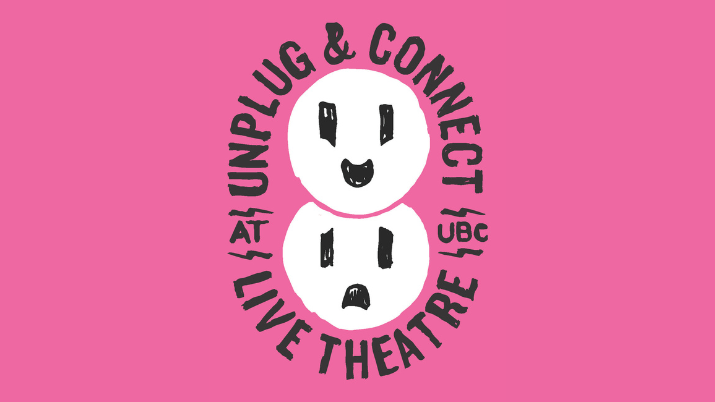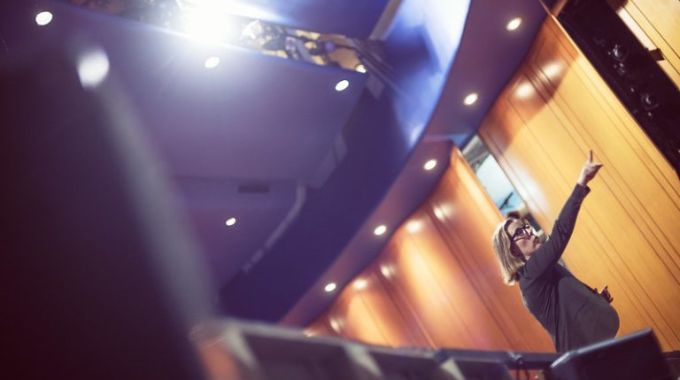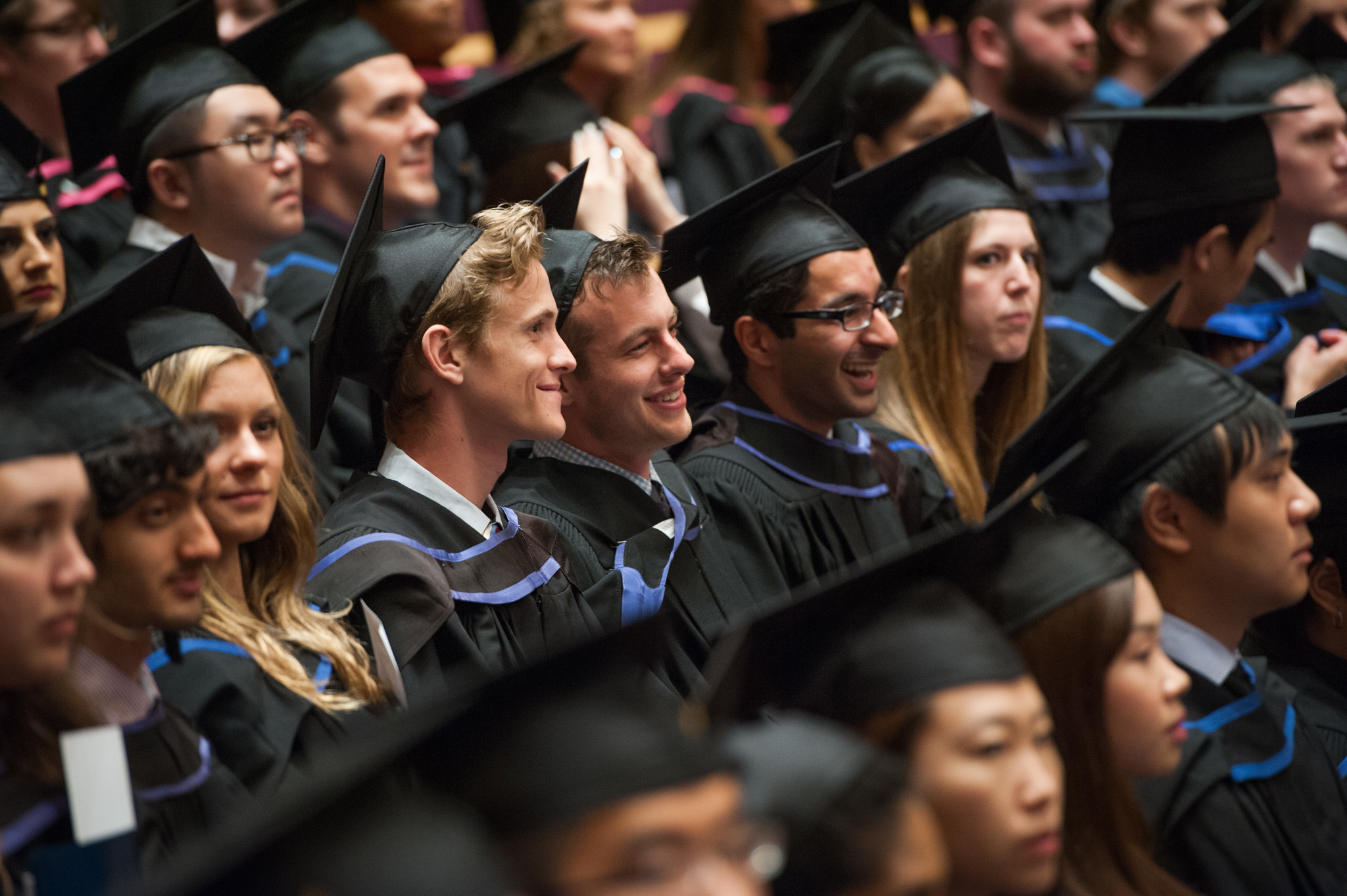UBC Theatre and Film’s second production of the 2023-2024 season is TomorrowLove. While the cast and crew prepare for opening night, we had the chance to connect with playwright Rosamund Small to delve into her inspirations, reflections, and unique insights about the play. Thank you, Rosamund!


Rosamund Small is a Canadian playwright. Favourite credits include Vitals (Outside the March/Theatre Passe Muraille) and TomorroLove (OtM) and Sisters (Soulpepper Theatre). She is a longtime Associate Artist with Outside the March, most recently working as a dramaturg/story editor for Sebastien Heins’ No Save Points. She has also collaborated with choreographer Robert Binet on four dance projects for the National Ballet of Canada, including his Orpheus Alive.
Rosamund has written for several Canadian television shows including CBC’s TallBoyz and Kim’s Convenience, and her work has been honoured with multiple Dora Mavor Moore Awards and the Nora Epstein National Literary Award. She holds a masters from OISE in Teaching with a research focus on Creative Writing pedagogy.
Rosamund is at work on a new solo creation: her first foray into performance.
What was the catalyst for writing TomorrowLove?
I spent a lot of my late teens and early twenties in love with various people. Often unrequited. It was so painful, but also very beautiful, and I look back at this time in my life with a lot of nostalgia. Simultaneously, I took some classes on identity, philosophy, and sexuality—these classes blew open my ideas about the self and what sex and love meant and gave me these new entry points into life. I loved Judith Butler and Gayle Rubin and all their ideas about labels and the self.
Then, and this is going to sound dated now, a friend told me about Shazam, and I realized that our phones could understand and listen to music?! Suddenly, I thought tech was going to fundamentally change us, our relationships, and our sense of ourselves. Together, that mix of influences brought me to this work. I also credit my collaborator Mitchell Cushman, who went on to direct the world premiere, for being there from the very early days, helping me distill these ingredients into a premise for a short play cycle.
TomorrowLove was written eight years ago, so you could say that we are in the “near future” that the play is set in. Do you think that the technological world has altered how we interact in and pursue relationships?
My goal with TomorrowLove was less about how tech has changed us, and more about how tech reveals us; the cracks in the relationship, the true feelings, the frustrations we bury… I wanted technology to open up honesty and confrontation, more than I wanted to posit that we are fundamentally changed. More like… this was underneath us, the whole time.
I do think technology has changed us. You can have a whole falling out with someone, a whole angry fight, or confess your greatest secret, through text or Snapchat or whatever, without seeing someone’s face. Nonetheless, the feelings remain human.
Maybe that’s one reason the plays continue to speak to people; we all know what it’s like to be heartbroken, in human conflict, all while facing a computer screen. To live that human anger and hope and desperation but through a tech interface. It is nice to find ways to dramatize that onstage and to experience it with two human actors up there and a live, human audience.
Is there anything that you would change if you wrote TomorrowLove in 2024?
When I re-read the script there are always a few words or sentences I would phrase slightly differently now because my politics have shifted a bit. I’m interested in what Gen Z would want to alter to make it fit them; I’m always open to that. But in terms of really big picture stuff? I don’t know. I mostly respect the pieces for what they are, and overall, I don’t feel I want to update them. Most of the pieces remain just outside reality, which is what I always wanted them to feel like a call from the very close future, where one impossible thing has become possible.
Most of the TomorrowLove plays are about tumultuous points of conflict in love or endings. If I wrote them now, they would have to touch on new questions I have about love, and they are questions less focused on two individual souls; I am focused on the wider community now, on how to sustain friendships and family relationships, more than on romantic or partnership crises. That might be why these plays make me so happy. When I re-read them, I feel transported to a younger version of myself, and I remember that ache of being so completely destroyed by love lost.
What do you hope audiences take with them?
If you’ve been in love, and you know that particular ache and pain, I want you to feel understood. Because I truly understand. I lived real loves, and so that comes through, I think, in the script. Beyond that, I want us to reconsider how contextual our lives are. So, the technology in the show gives us a glimpse of regular love dilemmas, but also causes them to go another way. Technology is the catalyst for a revelation that would otherwise have not arrived. Perhaps we could all muse on how our lives might completely alter if, for example, we could speak to someone on Zoom after they’ve died, or buy a limitless blackhole vortex fridge, or meet and date a clone of our partner.
Thank you again for chatting with us about TomorrowLove, Rosamund!
TomorrowLove runs from February 1-10 at the Telus Studio Theatre in the Chan Centre for the Performing Arts. Tickets are available from $13 here.


